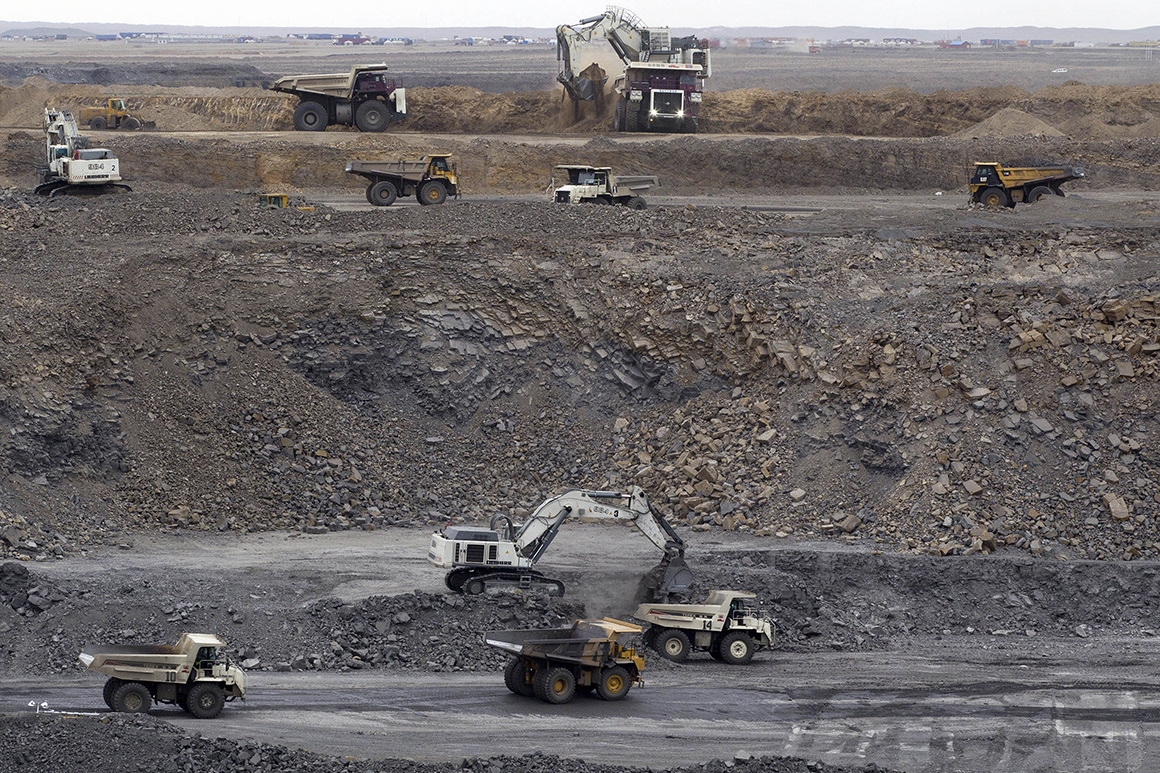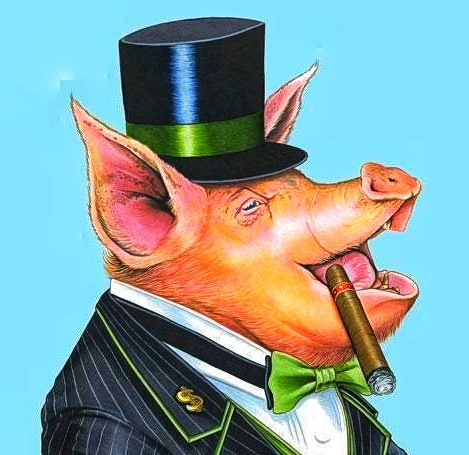Is communism just as prone to exploitation as capitalism? Looking for a discussion. Where's that c/economics?
Is communism just as prone to exploitation as capitalism?
The phrasing is important here. The answer to your question is "no" by definition, but I think a more precise line of questioning is: "Is a nominally communist superpower as prone to exploitation as a nominally capitalist superpower? Is it permissible to do 'some' exploitation in the name of achieving communism in the future? Is it likely (or even possible) for a large socialist country that is relatively stable to make radical changes to transition to communism, or will a new revolution be required?"
No matter what, if there are instances of exploitation that exist in socialist countries, they will be distorted in a double standard to put communism on trial.
Another relevant question that emerges from this: are these instances necessary? Without making a quantified assessment of the extent of it, is socialism dependent on exploitation, as capitalism is?
I'm not convinced that there's one singular solution to countering capitalist world powers. And I'm not convinced that the range of solutions involves mass executions, ethnic deportations, and purging half your own party.
The USSR achieved the most coordinated progress of any socialist experiment; however, that doesn't mean that every action taken was unilaterally good or that there was nothing that could be improved upon, or even that it was the best way at all. It was an experiment.
Doubling down on Stalin is not a good way to get the masses to join you. There's a lot of good reasons why reactionaries admire him, and communists should keep that in mind.
We are largely against the death penalty because the logic of "we have to become murderers to stop those other murderers" is not compelling to us.
Okay that's a relief, for a moment I thought I was stuck in a discursive dead-end there.
It's important to remember that people with absolute power can have paranoia or egoism (respectively) that rivals their commitment to equality. In fact it's not too much of a stretch to suggest that absolute power engenders these anti-social qualities in individuals. Or to suggest that dividing authority in different areas to different people is something that not only allows them to specialize better, but makes the organization more secure, less vulnerable to infiltration or subterfuge or assassination, and less likely to get caught in patterns of abuse.
There are a lot of things from capitalist culture that we need to un-learn. "The master's tools will not dismantle the master's house", and so on. I'm actually leaning towards the position that the very concept of leaders and leadership is a creation of the bourgeoisie to maintain the dynamic of all-encompassing authority.
I subscribe to the idea that it is nation-states that corrupted the Soviet system. Regardless of socialist intentions, the USSR emerged in a world where competitive nation-states were the norm and the country operated within that system. This isn't me being a trot or anything, nation-states create an artificial "us vs them" mentality where you justify an imperialist war in Afghanistan.
an imperialist war in Afghanistan
Since feudal times the landholding system in Afghanistan had remained unchanged, with more than 75 percent of the land owned by big landlords who comprised only 3 percent of the rural population. In the mid-1960s, democratic revolutionary elements coalesced to form the People's Democratic Party (PDP). In 1973, the king was deposed, but the government that replaced him proved to be autocratic, corrupt, and unpopular. It in turn was forced out in 1978 after a massive demonstration in front of the presidential palace, and after the army intervened on the side of the demonstrators.
The military officers who took charge invited the PDP to form a new government under the leadership of Noor Mohammed Taraki, a poet and novelist. This is how a Marxist-led coalition of national democratic forces came into office. "It was a totally indigenous happening. Not even the CIA blamed the USSR for it," writes John Ryan, a retired professor at the University of Winnipeg, who was conducting an agricultural research project in Afghanistan at about that time.
The Taraki government proceeded to legalize labor unions, and set up a minimum wage, a progressive income tax, a literacy campaign, and programs that gave ordinary people greater access to health care, housing, and public sanitation. Fledgling peasant cooperatives were started and price reductions on some key foods were imposed...
Because of its egalitarian and collectivist economic policies the Taraki government also incurred the opposition of the US national security state. Almost immediately after the PDP coalition came to power, the CIA, assisted by Saudi and Pakistani military, launched a large scale intervention into Afghanistan on the side of the ousted feudal lords, reactionary tribal chieftains, mullahs, and opium traffickers.
A top official within the Taraki government was Hafizulla Amin, believed by many to have been recruited by the CIA during the several years he spent in the United States as a student. In September 1979, Amin seized state power in an armed coup. He executed Taraki, halted the reforms, and murdered, jailed, or exiled thousands of Taraki supporters as he moved toward establishing a fundamentalist Islamic state. But within two months, he was overthrown by PDP remnants including elements within the military.
It should be noted that all this happened before the Soviet military intervention. National security adviser Zbigniew Brzezinski publicly admitted--months before Soviet troops entered the country--that the Carter administration was providing huge sums to Muslim extremists to subvert the reformist government. Part of that effort involved brutal attacks by the CIA-backed mujahideen against schools and teachers in rural areas.
In late 1979, the seriously besieged PDP government asked Moscow to send a contingent of troops to help ward off the mujahideen (Islamic guerrilla fighters) and foreign mercenaries, all recruited, financed, and well-armed by the CIA. The Soviets already had been sending aid for projects in mining, education, agriculture, and public health. Deploying troops represented a commitment of a more serious and politically dangerous sort. It took repeated requests from Kabul before Moscow agreed to intervene militarily.
TL;DR: An organic, popular left-wing government deposed the king and made some serious reforms that challenged capital. Then -- and stop me if you've heard this one before -- capital interests and social reactionaries allied with the U.S. and its client states to attack said popular left-wing government. This pushed the left-wing government into the USSR's camp (again, stop me if this sounds familiar) and it asked the Soviet Union for more and more help, up to and including military assistance.
It definitely isn't immune to these things happening. I'm currently reading "The Soviet Century" by Moshe Lewin which has a chapter dedicated to the use of forced labour through the NKVD.
Once the decision was taken to use the labour of camp inmates for economic tasks, the NKVD (renamed the MVD) became a key component of Stalinism. In 1952 its investments, which amounted to 12.18 billion roubles (9 per cent of gross domestic product), surpassed those of the petrol and coal ministries combined. Gross output of MVD industry was estimated at 17.18 billion roubles in February 1953 – only 2.3 per cent of the country’s total production. But it was the leading producer of cobalt and pewter and was responsible for a third of nickel production and a significant percentage of gold, wood and sawn timber (12–15 per cent). The plan for the early 1950s enhanced its weight and one of Stalin’s last orders related to cobalt output.
It is a pretty sad situation because all of this mining could be mechanized and give high paying jobs to the locals
After outcry in 2016, China did exactly that. They built the mine and are transferring ownership to a state run congolese mining operation after 9 years. Hopefully it remains a good mine that doesn't exploit child labor.
Also notice how the state run company that China is giving the mine to after 9 years is also being hounded for money issued by an Israli creditor.
Judging by the mine's predicted output (8,000T of cobalt per year) by the end of the 9 years a vast majority of the resources will still be on the ground meaning that the DRC will have a hugely profitable mine under state control for at least another decade. One that they own and aren't leasing from the IMF.
"artisanal miners" is such a weird (but on brand for hellworld) way to phrase slave mines.
I think the issue is often that socialist countries are generally anti imperialist first and socialist second. Even if they had perfect leadership, socialism would have to take a back seat to anti-inperialism and just surviving the endless onslaught on imperialist nations.




